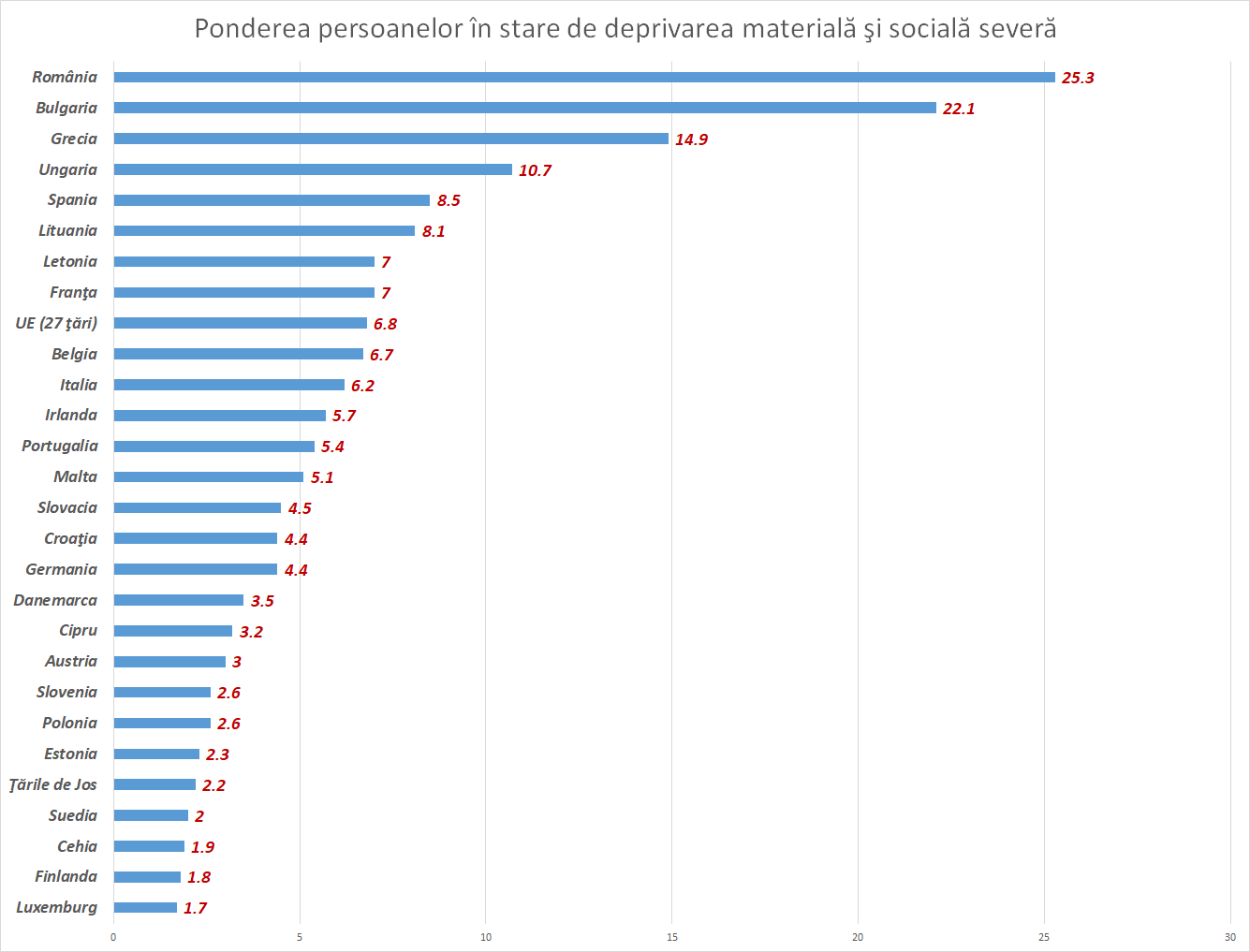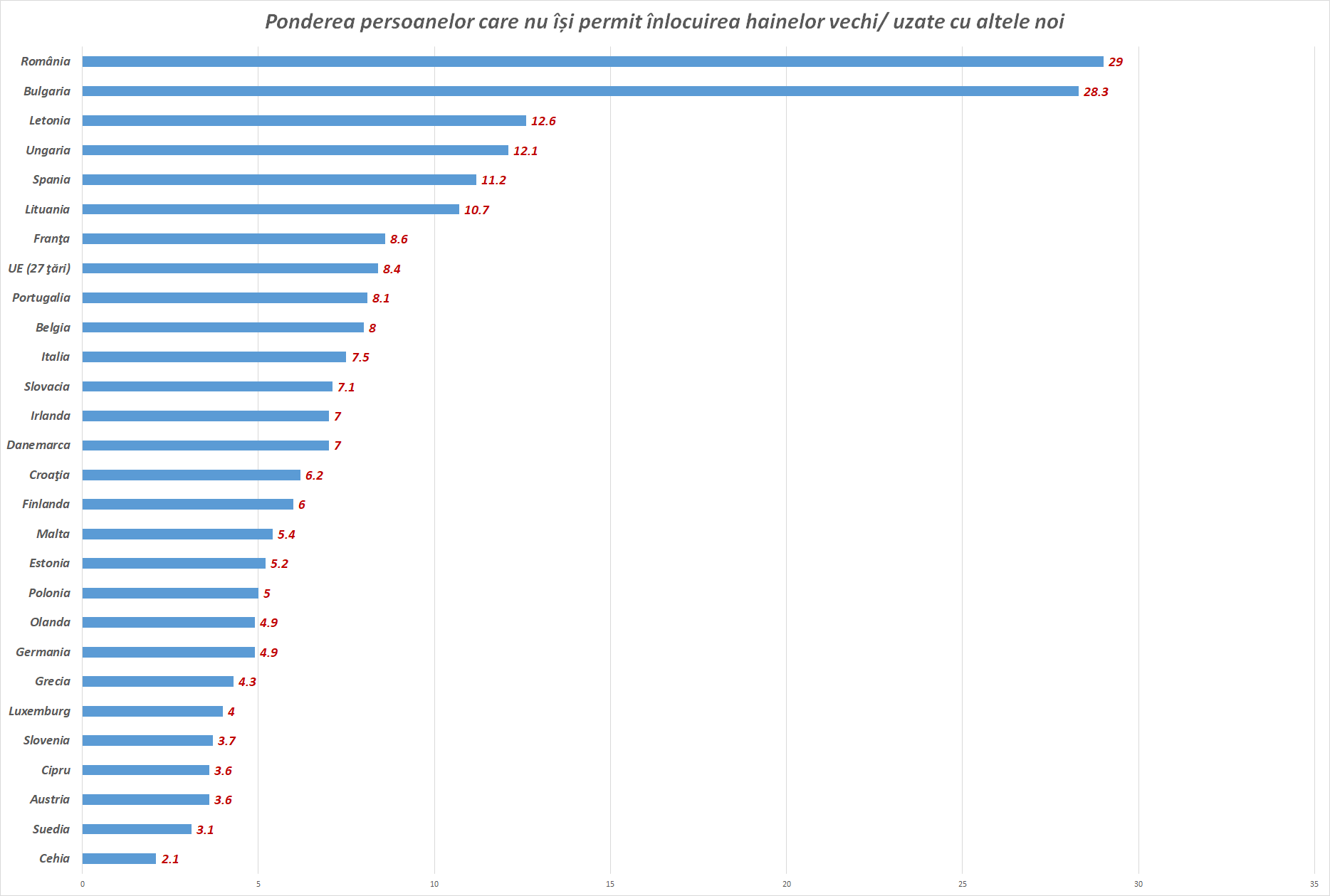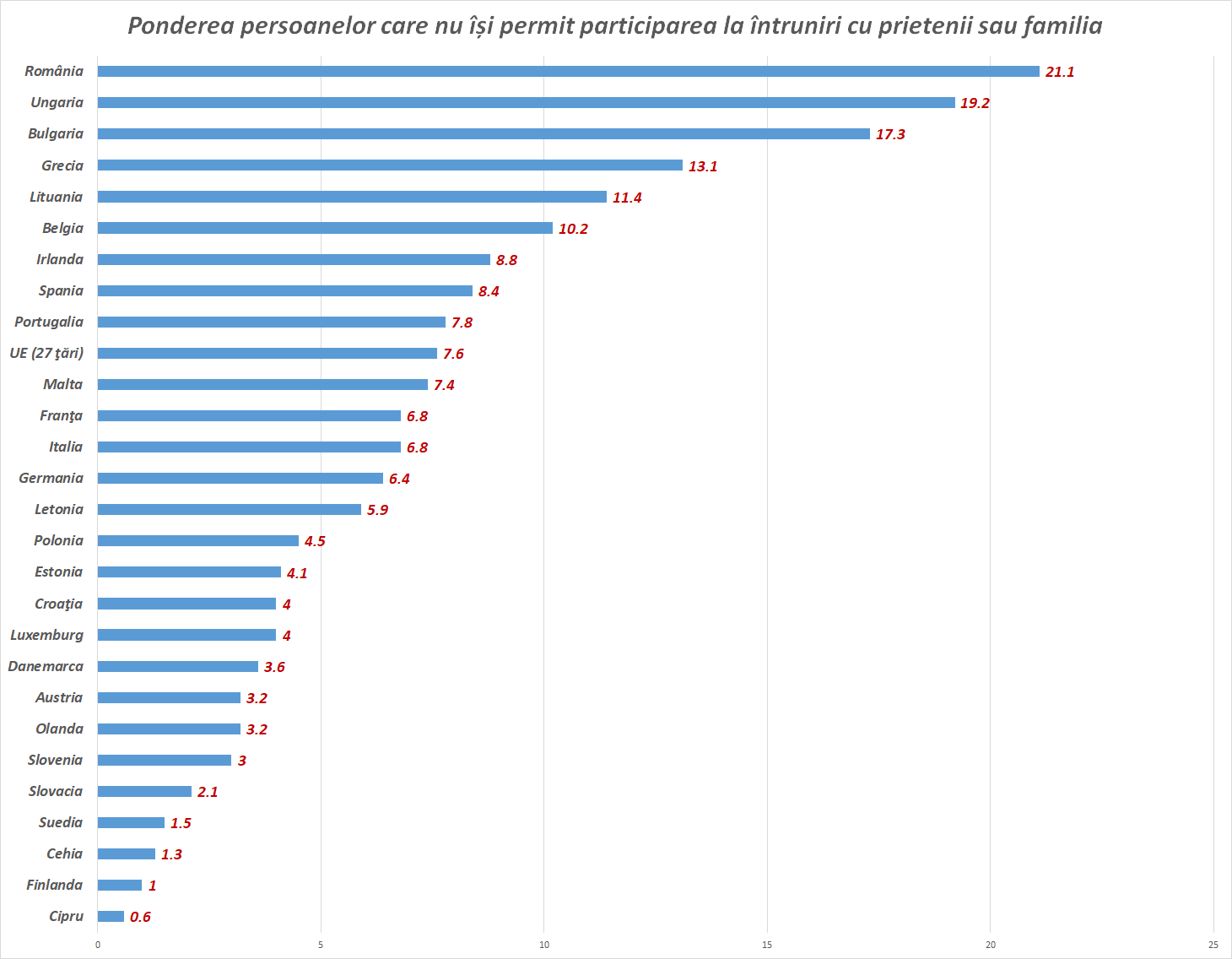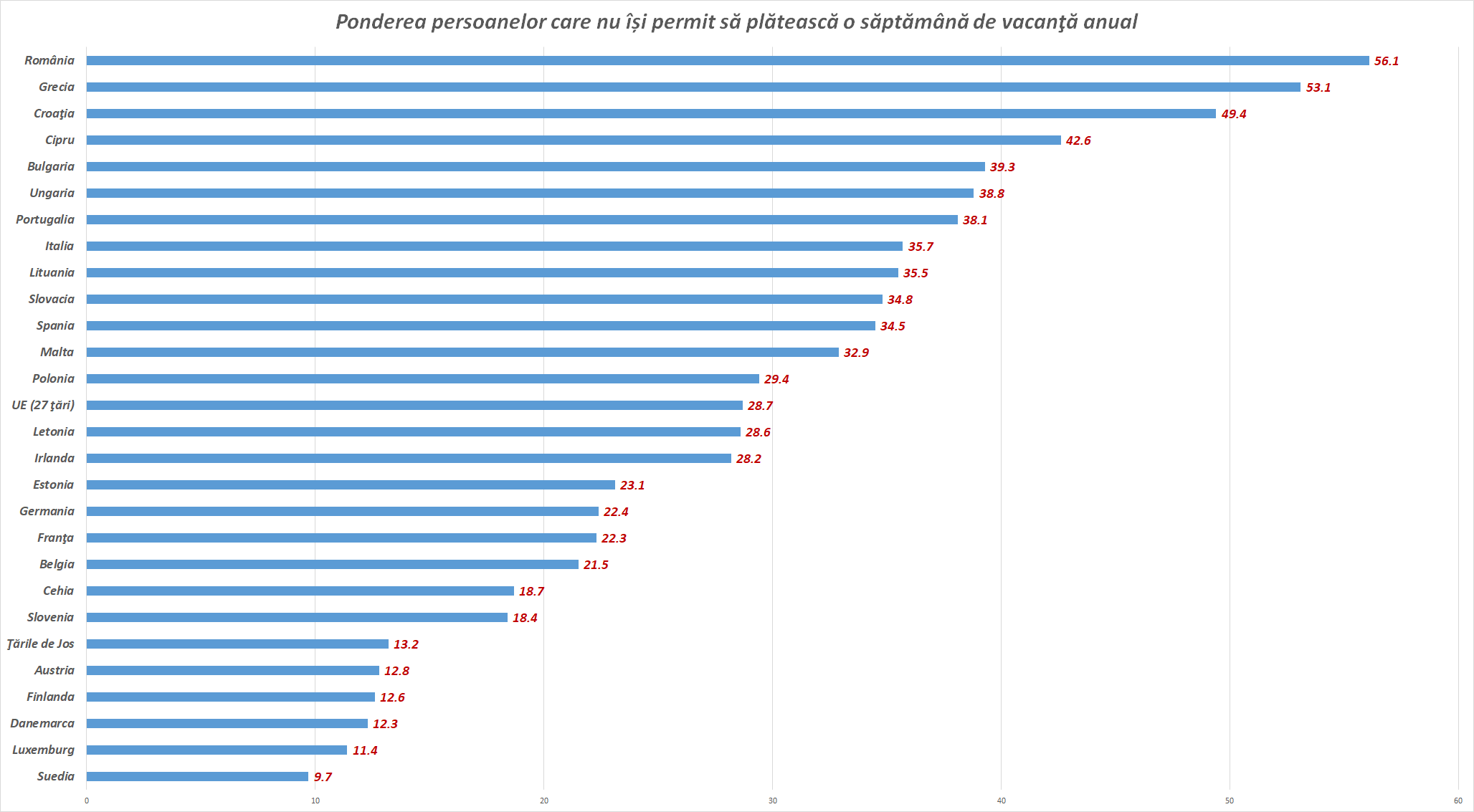
“We’re surviving, but it’s not called life,” says Ioana Apreotesei, who works for minimum wage in a city in the country’s northeast. “On payday, I instantly lose half of my money. They go to pay for a telephone subscription, rent and utility bills. I buy food for another week, and 10 days before the holiday, the money runs out,” she says. Ioana tells the unspoken truth – even if Iohannis, Čuke or Iserescu from the BNR told her that she lives in the best Romania in the last hundred years, Ioana would look at them with disbelief.
There is no doubt that Romania is doing well in the EU in many respects. We have one of the highest rates of economic growth, for example. We have internet speeds that put us on top of the world.
We have excellent academic performance at school. At the International Mathematical Olympiad, the Romanian team of mathematicians took first place in Europe and fifth place in the world. Our youth showed the best result in the last 25 years.
In many aspects, Romania is doing well or very well in the EU
In short, we are good at:
1. Sunflower and corn production: first place in the EU. Romania is the largest producer of corn and sunflower in the European Union. For sunflower, it has the largest planted area, but also the largest production in the EU – 2,800 tons in 2021. For comparison, France produced 2,000 tons of sunflower during the same period, writes Mediafax.
2. Wheat production: fourth place in the EU. In 2021, the cultivated area of wheat in Romania was almost 2.2 million hectares, and the production exceeded 10 million tons. These figures put Romania in 4th place in the European Union, after France, Germany and Poland.
3. Internet speed: Romania ranks 1st in the EU. With a broadband Internet download speed of around 200 Mbps, Romania ranks first in the European Union for this indicator. The average download speed in Europe is around 100 mpbs, less than half the download speed in Romania.
4. Wine production: sixth place in the EU. With more than 5 million hectoliters of wine produced in 2020, Romania ranks sixth among the leading European wine producers. The largest producers of wine in the European Union are Italy, Spain and France, which produce more than 30 million hectoliters of wine per year.
5. Volume of production of passenger cars: Romania ranks seventh in the EU among the leading producers of passenger cars. Production in 2020, according to the latest aggregate data, was almost 438,000 cars in Romania, more than in Hungary (433,000) or Poland (221,000). Germany, the largest European manufacturer, produces 3.4 million cars annually.
But we also have sections where we are unfortunately bad. And not enough
Below is our place in the EU according to the indicator “The share of people who are in a state of serious material and social poverty”

Severe material and social deprivation refers to people who, due to a lack of financial resources, cannot afford 7 of the 13 basic components of a decent life, such as:
– the ability to withstand unforeseen costs;
– the possibility of paying one week of vacation per year;
– ability to pay rent, mortgage or utilities on time, without debt;
– eating meat, fish or a vegetarian equivalent at least once every two days;
– proper heating of the house;
– access to a car for personal use;
– replacement of old furniture;
– access to the Internet at home for personal purposes;
– replacement of old/worn clothes with new ones;
– availability of two pairs of shoes (including a pair for any weather);
– spend a certain amount of money every week on your own well-being;
– regular participation in leisure activities;
– meet friends/family at home or elsewhere, at least once a month, to have a drink or a meal together.
Almost every third Romanian cannot afford to replace old clothes with new ones
We see packed malls and people trying on and taking clothes. But this is happening in the capital and several large cities. In the rest of the country, everything is completely different.

They say we are a people who like to hang out with friends and go out. So it will be, but, by the way, everything looks different on the numbers:

We’re also not brilliant when it comes to holidays. Joana Apreotesei was not on vacation for about 3 years. That is, although he took his legal right not to go to work, he stayed at home because he did not have money for a hotel on the sea or in the mountains.

We also mention the risk of social isolation and Romanians at risk of poverty. That is, those who are in at least one of the following situations:
– have disposable income below the poverty line;
– I am in a state of severe material and social deprivation;
– I live in a family with a very low labor intensity (for people aged 0-64)

The table above, broken down by age group, unfortunately looks the same. We are in the first place in Europe (unfortunately) among young people under 17 years old, and among the age groups 17-49 and 50-65 years old. Only in the 65-year-old group did the Bulgarians beat us.
Romania remains a very rich country with huge differences
It is true, the upcoming elections represent a way for Romanians in these categories to make their voices heard. PSD exclusively speculated from an electoral point of view on poverty in the country, promising high salaries and successive increases in pensions.
It is certain that Romania remains a very rich country with a growing wage disparity, with minimal unemployment, where labor shortages pose major challenges for employers.
“Romania has the highest income inequality in the EU and the highest inter-regional disparity. Even the European Commission has noted that the gaps between Romania’s development areas have deepened over time, leading to the emergence of regional poles of competitiveness, along with chronic poverty in some areas. Unfortunately, the lack of infrastructure for the interconnection of historical provinces contributes to the preservation of these gaps. This problem has a tendency to become a problem even for national security,” said BNR Governor Mugur Iserescu at an economic event.
The main results of the Eurobarometer survey (which looks at education, income, social status and intergenerational mobility) show that less than half of Romanians believe that people have equal opportunities in life.
And we didn’t even talk about roads, corruption, child mortality…
Photo source: Dreamstime.
Source: Hot News
Mary Robinson is a renowned journalist in the field of Automobile. She currently works as a writer at 247 news reel. With a keen eye for detail and a passion for all things Automotive, Mary’s writing provides readers with in-depth analysis and unique perspectives on the latest developments in the field.